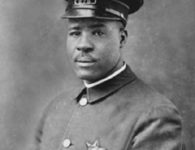Photo credits: Library of Congress/UIG via Getty Images
On April 17, 1915, a Black man called Caesar Sheffield was kidnapped from prison and shot to death within the city limits of Lake Park, Georgia, by a racist mob of enraged white men.
Mr. Sheffield, a husband, and father in his forties had been detained and charged with allegedly stealing pork from a nearby white man’s smokehouse. Before he could face charges for this supposed act, a mob of white men assembled and snatched him from the jail’s unguarded entrance.
Throughout this period of racial terror lynching, the pervasive racial hostility in American society burdened Black people with a supposition of guilt, which frequently served to focus suspicion on Black communities following the discovery of a crime, regardless of whether the evidence supported that suspicion.
This racial animosity and assumption of guilt often proved fatal, especially in the case of minor acts such as larceny. While the presumption of innocence is a cornerstone of American criminal law, Black Americans like as Caesar Sheffield were often denied this protection or their right to a fair trial and were instead killed by angry white mobs.
Mr. Sheffield’s abduction from the prison was very easy for the mob since the facility had been totally deserted and no law enforcement officers were there. As was often the case during this century, police and prison authorities tasked with safeguarding persons in their care abdicated.
This exposed defenseless and unprotected Black persons like Mr. Sheffield from the recognized fear of lynching. When the white men apprehended Mr. Sheffield, they shot him to death in a neighboring field; his corpse was discovered, ravaged with bullets later that day.
Following Caesar Sheffield’s lynching, no arrests were made and no one was ever held guilty for his killing. According to the Equal Justice Initiative, he is one of at least 594 African-Americans killed in Georgia between 1877 and 1950 and one of over 6,500 victims of racial terror lynching.






















No comments